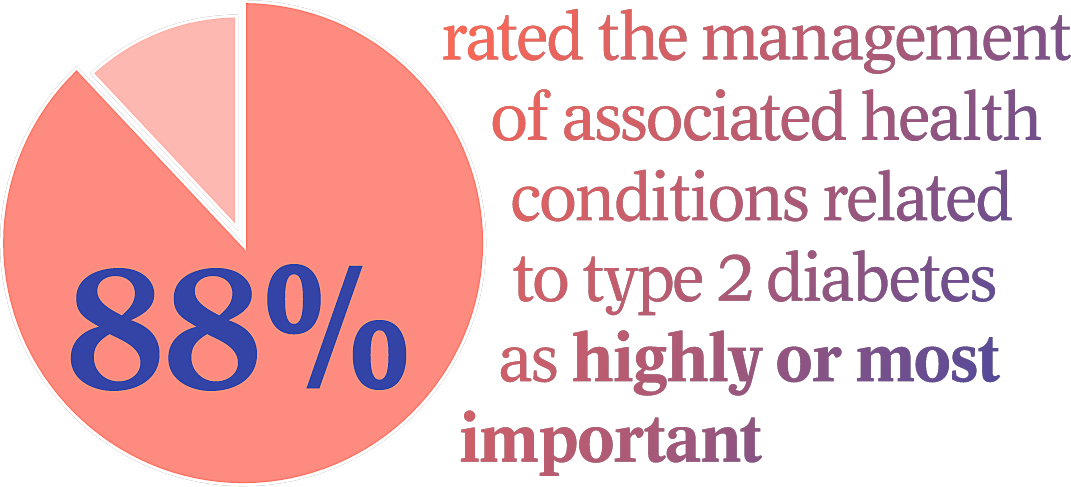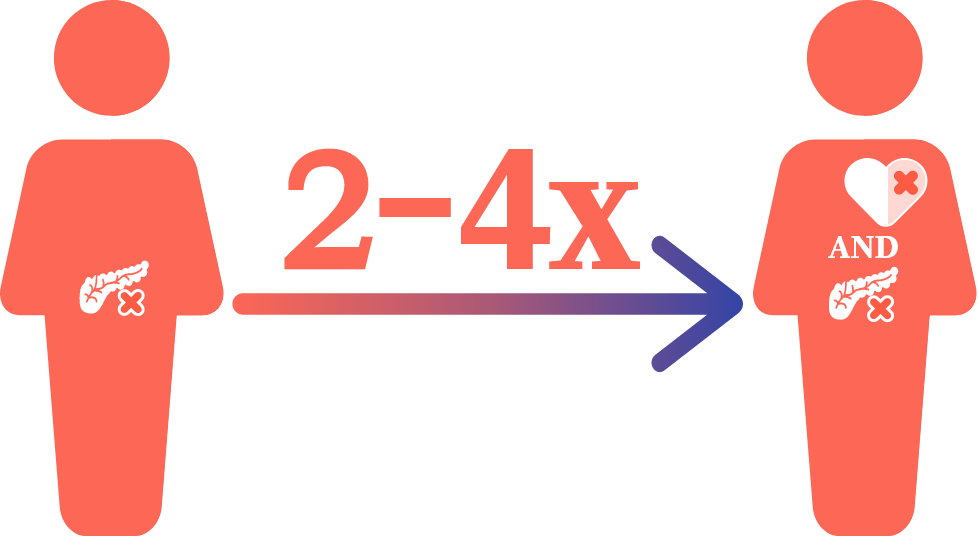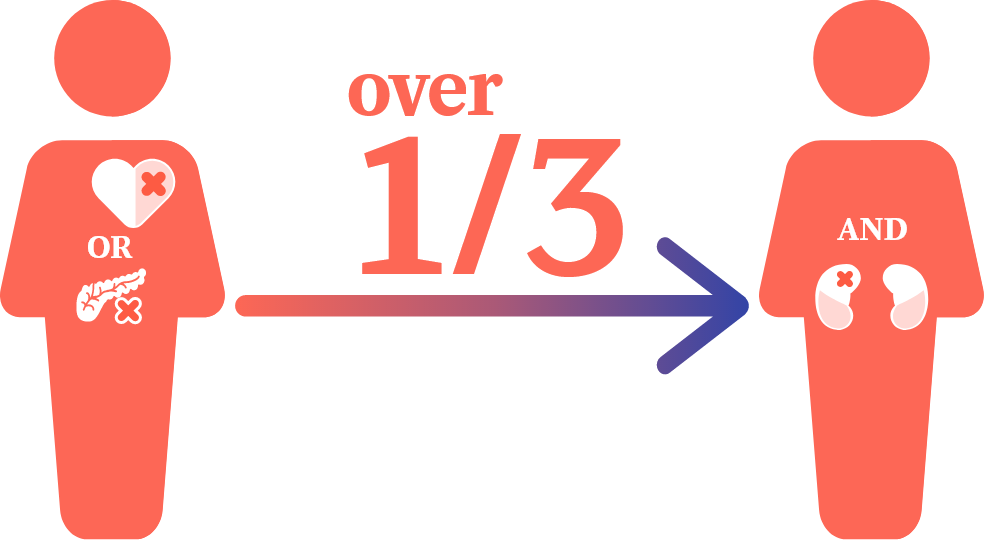
Chapter 1: Comorbidities of type 2 diabetes
The most important topics to respondents regarding their diabetes management were:
The effect diabetes may have on vital organs, including the heart, kidney, eyes, etc.

Management of associated health conditions related to type 2 diabetes.

In people with diabetes, heart and kidney disorders often coexist — the cardio-renal-metabolic systems are intimately linked.
People with type 2 diabetes are 2 to 4 times more likely to develop heart disease compared to those without diabetes, and over a third of people with diabetes or heart failure also have chronic kidney disease.1,2,3


Join Harold Heart and Friends and learn about:
If you are experiencing any symptoms or are concerned about diabetic comorbidities, speak to your doctor or healthcare team.

Chapter 2: Communicating with healthcare professionals
Living with a long-term condition like type 2 diabetes can be difficult and it is important for people to feel confident in communicating with their doctor and wider healthcare team.
Over 50% of respondents rated quality of communication with doctors and healthcare providers as highly important

1 in 4 rated this as most important in their diabetes management

The results indicated that it was important for the respondents to have more information about available treatment options.

If you have type 2 diabetes, speak to your doctor about the available treatment options. This can sometimes feel nerve-racking, but an open conversation can be really helpful.
To help you feel more comfortable talking to your doctor, you may want to try some of the below:4

Plan what you would like to say beforehand and write it down. Perhaps prepare a focused list of questions and bring them with you to the appointment.

Be completely honest – there is no question too big or small. Your doctor can only give you the best advice if they know your whole story.

Feel free to take a close friend or family member along to your appointment. They can even write down important points during the appointment for you, that you can refer to later.

Chapter 3: Diet and lifestyle

of respondents, diet, lifestyle and an exercise plan were highly or most important to them as an aspect of their diabetes management.

...that the foundation of type 2 diabetes management is:5
1. A healthy diet

2. Regular physical activity

3. Maintaining a healthy body weight

Harold Heart and Friends
Follow the link below to find out more about how to get active and eat better in order to live healthily with diabetes.


Chapter 4: Mental health and COVID-19

of respondents ranked the impact of COVID-19 and diabetes management as highly or most important to them.
The coronavirus global pandemic has changed the way we live and how people manage chronic conditions such as diabetes; from perhaps not being able to leave their home when they want to, to adjusting to a new way of communication with their healthcare team.
Managing emotions and feelings when living with type 2 diabetes during COVID-19 can be tough but it is important to remember that you are not alone. In fact, there are currently 463 million people living with diabetes worldwide.6

Talk to your healthcare provider about any diabetes support groups or patient organizations that you can get involved with in your area.
Talking through how you feel with people you trust or those going through similar experiences can help with managing your condition.


Chapter 5: Further resources
The results have shown us that respondents wanted additional information about type 2 diabetes, and more access to online resources for disease information and emotional support – over 70% rated this as highly or most important.

We have therefore shared some online resources that you may find useful below.
Type 2 diabetes and heart disease

References
- 1. Beckman J. JAMA. 2002;287:2570–81.
- 2. Winocour PH. Diabetic Medicine. 2018;35(3):300–5.
- 3. Aguilar D. Circulation: Heart Failure. 2016;9(7): e003316.
- 4. Diabetes.org. Get the most out of your appointments. Available at: https://www.diabetes.org.uk/guide-to-diabetes/managing-your-diabetes/interactions-with-healthcare-professionals. Accessed January 2021.
- 5. Idf.org. Management of type 2 diabetes. Available at: https://idf.org/aboutdiabetes/type-2-diabetes.html. Accessed January 2021.
- 6. International Diabetes Federation. IDF Diabetes Atlas, 9th edn. Brussels, Belgium: 2019. Available at: https://www.diabetesatlas.org. Accessed January 2021.







